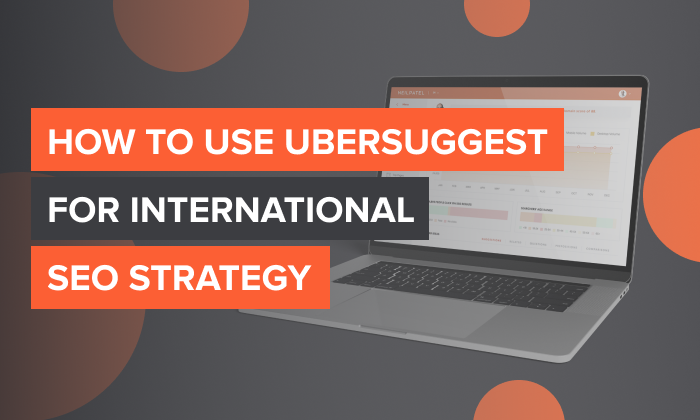International SEO: How to Optimize Your Website for Other Countries

By Eli Schwartz
Search engine optimization (SEO) is critical to help your brand reach the first page of search results and ideally climb into the top 5 positions for your primary keyword.
But what happens when you want to expand outside of local markets? With Google now seeing more than 3.5 billion searches per day, there’s a massive opportunity for brands to capture new customers. The caveat is that existing SEO practices may not translate — and in some cases, may actually hurt your brand in other countries.
To avoid this potential pitfall, a robust international SEO strategy is critical. Here’s what you need to know about what it is, how it works, how it’ll benefit you, and what steps you can take to create an effective plan.
Ready? Shkojme! Idemo! Vámonos! Let’s go!
Effective strategies leverage a combination of geographic and language data to develop SEO plans that drive reliable ROI. A strong international SEO strategy will help your company reach new markets and multiply revenue.
What does international SEO do for company websites?
An international SEO strategy for websites focuses on creating content that’s applicable to local markets, as well as developing a website structure that makes it easy for search engines to find and serve the right webpages to the right users at the right time.
Consider a company that sells window shades in the United States and is making a move into Canada. First, you’ll want to ensure Canadian customers are sent to the right pages on your website — pages that contain information about Canadian locations, Canadian shipping times, and fees and costs in CAD.
You’ll need a website structure that includes both U.S. and Canadian pages and leverages enough metadata that search requests from users will direct them to the right page for their current location.
Does my business need an international SEO strategy?
It depends.
If you have no plans to expand beyond local markets — such as your current city or state — international SEO probably isn’t worth the time and resources required. In fact, international SEO can backfire if your business is entirely local. Customers who land on international pages won’t be happy when they discover you serve a very small geographic area.
On the other hand, if you’re looking to expand beyond country borders, it’s worth spending on international SEO. Given the sheer number of companies competing on the global stage and the increased challenge in ranking highly for relevant keywords, a comprehensive strategy is critical.
Still not sure whether you should go for a local SEO strategy or international SEO strategy?
There are four primary differentiators between local SEO and international SEO:
- Cost: Owing to their scale and scope, international SEO efforts come with significant costs.
- Content: To ensure international reach, you’ll need to create significantly more content than you would for a local SEO strategy.
- Capture: International SEO expands the target market you’re trying to capture, …read more
Source:: HubSpot Blog







